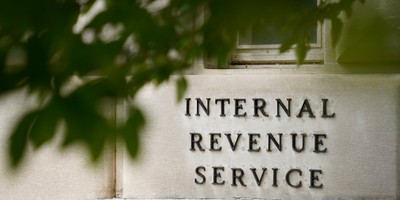The most overlooked outcome in November’s elections is the potential partisan switch in governorships. As in Congress, Republicans look to add several states, especially in the Midwest. If realized, these gubernatorial changes will have both near- and long-term implications. Unexpectedly, this prize may well turn out to be not only this November’s biggest but a gift that keeps on giving.
All eyes have been concentrated on this November's congressional impact. With control of Congress on the line, who can blame political observers? However, it is worth taking a broader look at other potential outcomes. None has greater political potential than the 37 contested governorships.
As in Congress, Republicans appear likely to make gubernatorial gains. The most important and most unexpected block of these is in the nation’s Midwest.
Two years ago, the Midwest seemed closed to Republicans. It was thought years of work would be needed to recoup ranks there. Suddenly, years appear to have shrunk to months. Pennsylvania, Michigan, Ohio, Illinois, Iowa, and Wisconsin, all could be Republican pickups, joining already-held Indiana and possibly Minnesota (which Republican Tim Pawlenty is vacating).
More broadly, Republicans are even more likely to hold Kansas, Nebraska, North and South Dakota. Only Missouri, which is not electing a governor this year, would have a Democratic governor in the nation's midsection.
Such an outcome offers enormous political potential.
These 13 states hold 119 House seats–over a quarter of the entire House of Representatives. Governors' races at the top of these tickets will certainly affect down-ballot races.
Further impact could come in 2012, following redistricting. The region will lose House seats and, even without losses, population shifts always make redistricting a prime political opportunity. Republicans, who easily could have lacked a seat at this political feast, could find themselves sitting at the heads of the table. And the opportunity is very real – Republicans currently trail Democrats 52-67 in these states' House seats.
Recommended
The Senate impact is less direct but still important. Strong governor candidates will again aid in this year’s races. In future years, governors also make prime Senate candidates themselves. In states where Republicans might have been looking for candidates, an entirely new crop of top-tier recruits could be growing.
And again, there is a real Republican potential here. Republicans currently trail Democrats 8-18 in these 13 states’ Senate seats. Ten seats is big – coincidentally being the number separating the two parties in today’s Senate.
These governorships' final electoral bonus could come in presidential elections. Having successful statewide organizations in place delivers big dividends in presidential politics.
How much of an electoral impact could these states have? Only 270 electoral votes are needed to win the presidency. Obama won with a 365-173 landslide in 2008. Republicans need 97 electoral votes to reverse that outcome. The six Midwestern states, whose governorships Republicans could potentially capture, hold 96 electoral votes – 106 if Minnesota is retained.
And just as governors make very attractive Senate candidates, they also make attractive presidential candidates. Four of the previous five presidents were governors.
Governors’ impact is not all political either. Governors' most important contribution may be policy. Washington rarely reinvents itself; states are the nation’s policy incubators. Governors are its policy innovators.
Like Reagan in 1980, presidents bring policy changes with them to Washington. Some of this is already happening in Republican ranks – Mitch Daniels in Indiana and Chris Christie in New Jersey are already successfully addressing problems very similar to Washington's.
Republicans need a policy infusion as much as a political one. New Midwestern governors, tackling high unemployment and shrinking manufacturing bases in their states, could prove very attractive nationally. And at the same time, diversify the party geographically.
The 2010 elections certainly portend a big and immediate impact on Washington. However, there is likely to be a profound impact beyond the Beltway too. In governorships, that big impact could be long-lasting. Most incredibly, it would be taking place in states Republicans seemed almost resigned to abandoning not two years ago.

























Join the conversation as a VIP Member